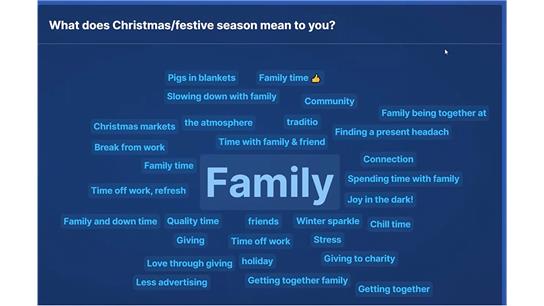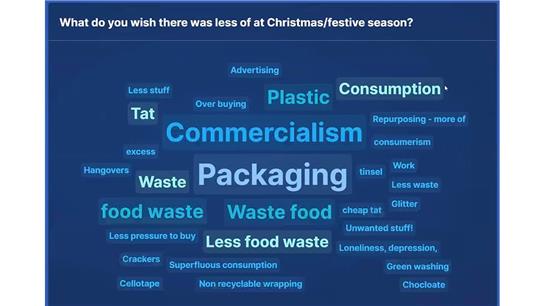Webinar Highlights | Strategies for sustainable consumption year-round
I had the pleasure of sitting in on the ‘Strategies for sustainable consumption year-round’ webinar, which looked at consumption during the festive season and how waste prevention strategies during this peak time can be applied throughout 2024 and beyond.
The panel consisted of Jen Gale from Sustainable(ish), Anna Scott from Keep Britain Tidy, Livvy Drake from Sustainable Sidekicks alongside Sarah Ottaway and chair Dr Adam Read, from SUEZ recycling and recovery UK. I have not been with SUEZ or the waste sector long and I have come from a broader sustainability and climate change background. Still, even before starting this role, I was all too familiar with the issue of overconsumption. Stepping behind the curtain and seeing how our waste materials are handled and the sheer scale of it has been an eye-opener; it is one thing reading about the amount of stuff that is thrown away, but it is quite another seeing the volume of waste first-hand. My current and past work has involved collaborating with people and delivering training to spur more sustainable behaviours. Seeing what happens to our stuff when we throw it away can be one of the most powerful tools we have. So, when this webinar came around, I was very intrigued to listen in, both by the calibre of panellists and the key issue of consumption at Christmas.
Consumption at Christmas
Despite our best efforts, at this time of year, many of us have been guilty of buying too much or throwing away gifts we did not want. One of the most frustrating and interesting topics the panel discussed was how we, as those in the sustainability world, communicate about overconsumption at this time of year. Everyone is constantly bombarded in the lead-up to Christmas with TV adverts, billboards, radio jingles and social media posts about the latest miracle products that our Christmas will not be complete without. When the panel discussed how we counter this messaging, one of the key takeaways for me was the importance of the messenger. People will mostly listen to people like themselves and listen far more to friends, families and even celebrities they like, rather than the local council or government. Since the consumption messages are so voluminous at this time of year, it is crucial that whatever airtime and space sustainability can get has to cut through the noise and hit the mark.
I also found it fascinating that while most of us believe that, as a society, we consume too much, only a minority think they themselves consume too much. This point was supported by the audience’s answers to one of the poll questions, which reinforced the expectations to consume at this time of year.
When to talk about it
Along with ensuring the message itself is correct, another crucial consideration the panellists also discussed was when to start talking about it. The key point is that if you only start talking about Christmas consumption in December, you’re already too late, which is a very salient point. By then, people have started to buy or have already planned out what they are going to buy. Leaving it too late can be equally harmful to the environment as we end up buying unconsciously and are much more likely to buy things that aren’t wanted or needed.
Building the themes of sustainable consumption into the discourse throughout the year is the only way we can shift norms and nudge people. The panel raised the consumption hangover we face in January after all the gifts, the parties, and the pigs in blankets, which can be a potent time to reach people. However, if this messaging isn’t maintained and reinforced throughout the year, it will be forgotten by the next Christmas. A stream of effective messaging all year, which is tailored for Christmas from October and November, seems a better option. Equally, this is not something that has to be limited to Christmas; there’s a plethora of holidays and festivities where we overconsume, such as Valentine’s Day, Easter, Halloween among others, which could all benefit from a more responsible and sustainable consumption approach.
To watch the full webinar session on ‘Strategies for sustainable consumption all year-round’, click here.

